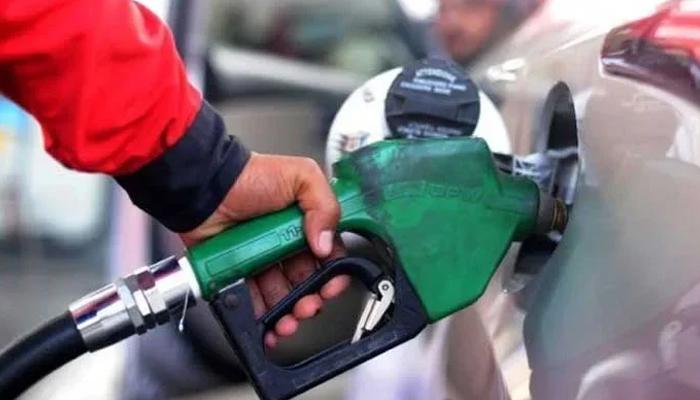Govt revives plan to deregulate kerosene and diesel prices
Tax imposed on oil products at Rs50/liter on both fuels after their deregulation
KARACHI: The government has resumed its efforts to deregulate the prices of kerosene and light diesel oil, two key fuels used by the poor and the agriculture sector, after shelving the plan in 2022.
The petroleum division has proposed to maintain the petroleum levy, a tax imposed on oil products, at Rs50 per liter on both fuels after their deregulation, according to an official document seen by The News.
The levy, which is currently capped at the same level, will be revised as per the rates notified by the government from time to time, the document said. The government had previously attempted to deregulate kerosene and light diesel oil in 2022, but the plan was rejected by the Economic Coordination Committee of the cabinet due to concerns over its impact on the poor and the farmers, who rely on these fuels for cooking, lighting and irrigation.
The proposal is part of a summary prepared by the petroleum division, which has been asked
to seek comments from the finance division, the Federal Board of Revenue (FBR), the Oil and Gas Regulatory Authority (OGRA) and other stakeholders, as the proposal contains financial implications.
The oil industry has long demanded the deregulation of all oil products, arguing that it would improve competition, efficiency and transparency. Currently, only furnace oil and high octane, two niche products with low demand, are deregulated, while the government sets the prices of high speed diesel, petrol, kerosene and light diesel oil every fortnight based on a formula that includes international oil prices, exchange rate, taxes and margins.
If the plan is approved, the government will only regulate the prices of high speed diesel and petrol, the two most widely used fuels in the country. Kerosene and light diesel oil account for less than 10 percent of the total oil consumption.
The move to deregulate kerosene and light diesel oil could have implications for the inflation rate, which has been hovering near 30 for the past few months, as well as for the fiscal deficit, which the government is trying to reduce under an International Monetary Fund program. The petroleum levy is a major source of revenue for the government, which target Rs869 billion from it in the current 2023-24 fiscal year.
-
 Michelle Obama Gets Candid About Spontaneous Decision At Piercings Tattoo
Michelle Obama Gets Candid About Spontaneous Decision At Piercings Tattoo -
 Bunnie Xo Shares Raw Confession After Year-long IVF Struggle
Bunnie Xo Shares Raw Confession After Year-long IVF Struggle -
 Brooks Nader Reveals Why She Quit Fillers After Years
Brooks Nader Reveals Why She Quit Fillers After Years -
 Travis Kelce Plays Key Role In Taylor Swift's 'Opalite' Remix
Travis Kelce Plays Key Role In Taylor Swift's 'Opalite' Remix -
 How Jennifer Aniston's 57th Birthday Went With Boyfriend Jim Curtis
How Jennifer Aniston's 57th Birthday Went With Boyfriend Jim Curtis -
 JoJo Siwa Shares Inspiring Words With Young Changemakers
JoJo Siwa Shares Inspiring Words With Young Changemakers -
 James Van Der Beek Loved Ones Breaks Silence After Fundraiser Hits $2.2M
James Van Der Beek Loved Ones Breaks Silence After Fundraiser Hits $2.2M -
 Disney’s $336m 'Snow White' Remake Ends With $170m Box Office Loss: Report
Disney’s $336m 'Snow White' Remake Ends With $170m Box Office Loss: Report -
 Travis Kelce's Mom Donna Kelce Breaks Silence On His Retirement Plans
Travis Kelce's Mom Donna Kelce Breaks Silence On His Retirement Plans -
 Premiere Date Of 'Spider-Noir' Featuring Nicolas Cage Announced
Premiere Date Of 'Spider-Noir' Featuring Nicolas Cage Announced -
 Pedro Pascal's Sister Reveals His Reaction To Her 'The Beauty' Role
Pedro Pascal's Sister Reveals His Reaction To Her 'The Beauty' Role -
 Kate Middleton Proves She's True 'children's Princess' With THIS Move
Kate Middleton Proves She's True 'children's Princess' With THIS Move -
 Paul Anka Reveals How He Raised Son Ethan Differently From His Daughters
Paul Anka Reveals How He Raised Son Ethan Differently From His Daughters -
 'A Very Special Visitor' Meets Queen Camilla At Clarence House
'A Very Special Visitor' Meets Queen Camilla At Clarence House -
 Jodie Turner Smith Shares One Strict Rule She Follows As A Mom
Jodie Turner Smith Shares One Strict Rule She Follows As A Mom -
 Hailey Bieber Reveals KEY To Balancing Motherhood With Career
Hailey Bieber Reveals KEY To Balancing Motherhood With Career




